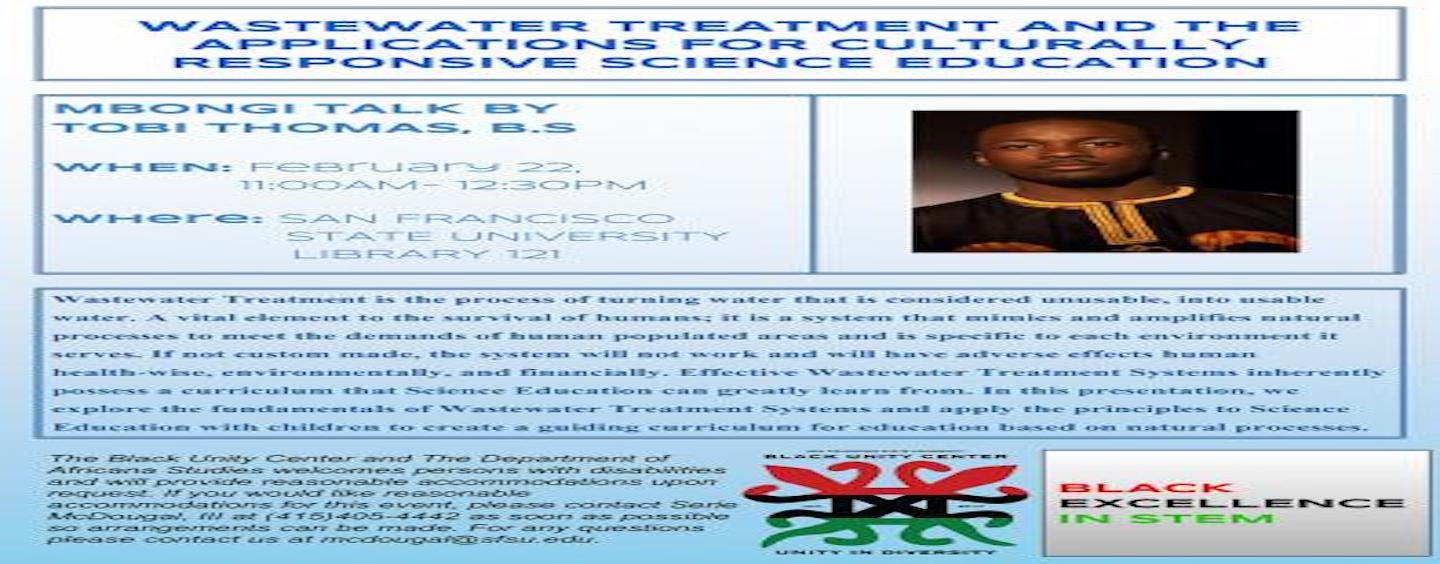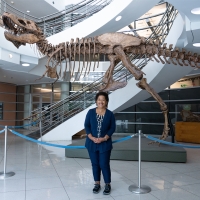Wastewater Treatment And The Applications For Culturally Responsive Science Education

Wastewater Treatment is the process of turning water that is considered unusable, into usable water. A vital element to the survival of humans; it is a system that mimics and amplifies natural processes to meet the demands of human populated areas. Wastewater Treatment Systems are specific to each environment it serves. It is highly specialized for that environment by design and if for some reason it is not custom made for it, the system will not work and have adverse effects human health-wise, environmentally, and financially. Effective Wastewater Treatment Systems inherently possess a curriculum that Science Education can greatly learn from. In this presentation, we explore the fundamentals of Wastewater Treatment Systems and apply the principles to Science Education with children to create a guiding curriculum for education based on natural processes.
Guest Biography: Tobi Thomas was born in Nigeria but raised in California. Holding degrees in physics, psychology, and early childhood education, Thomas is currently pursuing a Master degree in Astrophysics, his ultimate goal is to travel to space. Thomas currently is involved in research in “teacher phobia in science education prek-6th grade”, “psychology of sleep in space”, and “Resonant transmission of light through Zinc Oxcide nano-wave-guides” essentially trying to see very very small things and seeing through objects. Thomas lectures at Contra Costa College on the topic of Environmental Rating Scales in pre-k, child development, and science/math education with children.



